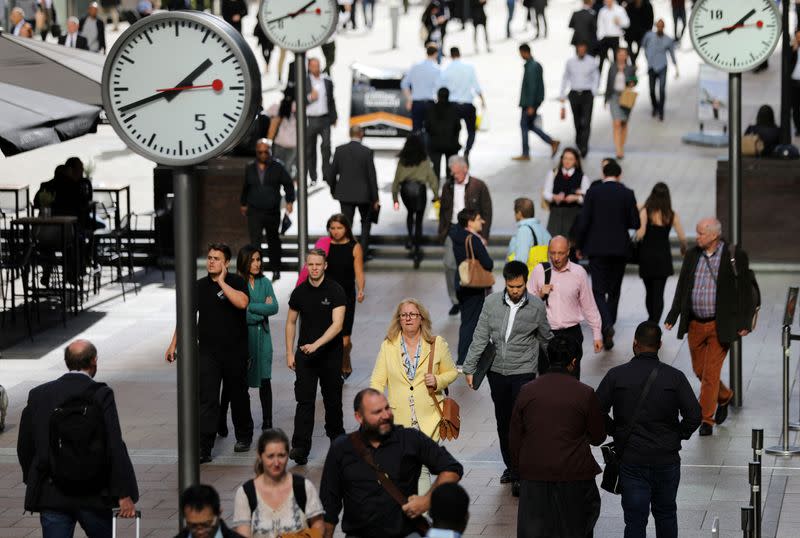UK consumers slash spending on less urgent items - ONS

By Andy Bruce
LONDON (Reuters) - British consumer spending on non-urgent items - such as clothing, furniture and cars - fell last week to its lowest since February as spending on petrol surged, according to official data on Thursday based on credit and debt card usage.
The Office for National Statistics said spending on goods that it classes as 'delayable' fell to 80% of its pre-pandemic February 2020 average level in the week to July 21, compared with 86% in the week before.
The figures are not adjusted for inflation, which hit a 40-year high of 9.4% in June.
Adjusting for inflation, consumer spending has become increasingly skewed towards work-related spending - reflecting the soaring cost of fuelling cars for commuting.
UK card spending vs Feb 2020 average, adjusted for inflation: https://fingfx.thomsonreuters.com/gfx/polling/mypmnlearvr/Pasted%20image%201659006198426.png
Last week, real-terms card spending in this category stood 28% above its February 2020 average, based on a Reuters calculation that assumes unchanged annual inflation of 9.4% in July.
By contrast, inflation-adjusted card spending on delayable items stood some 28% below its February 2020 average.
Overall the figures underline the changing patterns of consumption as households struggle to adapt to soaring energy costs.
The ONS card spending data do not capture most household energy bills, which are typically paid through bank direct debits.
Separate data from online payment provider Revolut showed spending on petrol and diesel was 48% higher than at the same point a year ago.
Total card spending on credit and debit cards last week matched its February 2020 average in current prices - but after adjusting for inflation, was down nearly 11%.
(Reporting by Andy Bruce; editing by David Milliken)

 Yahoo Finance
Yahoo Finance 